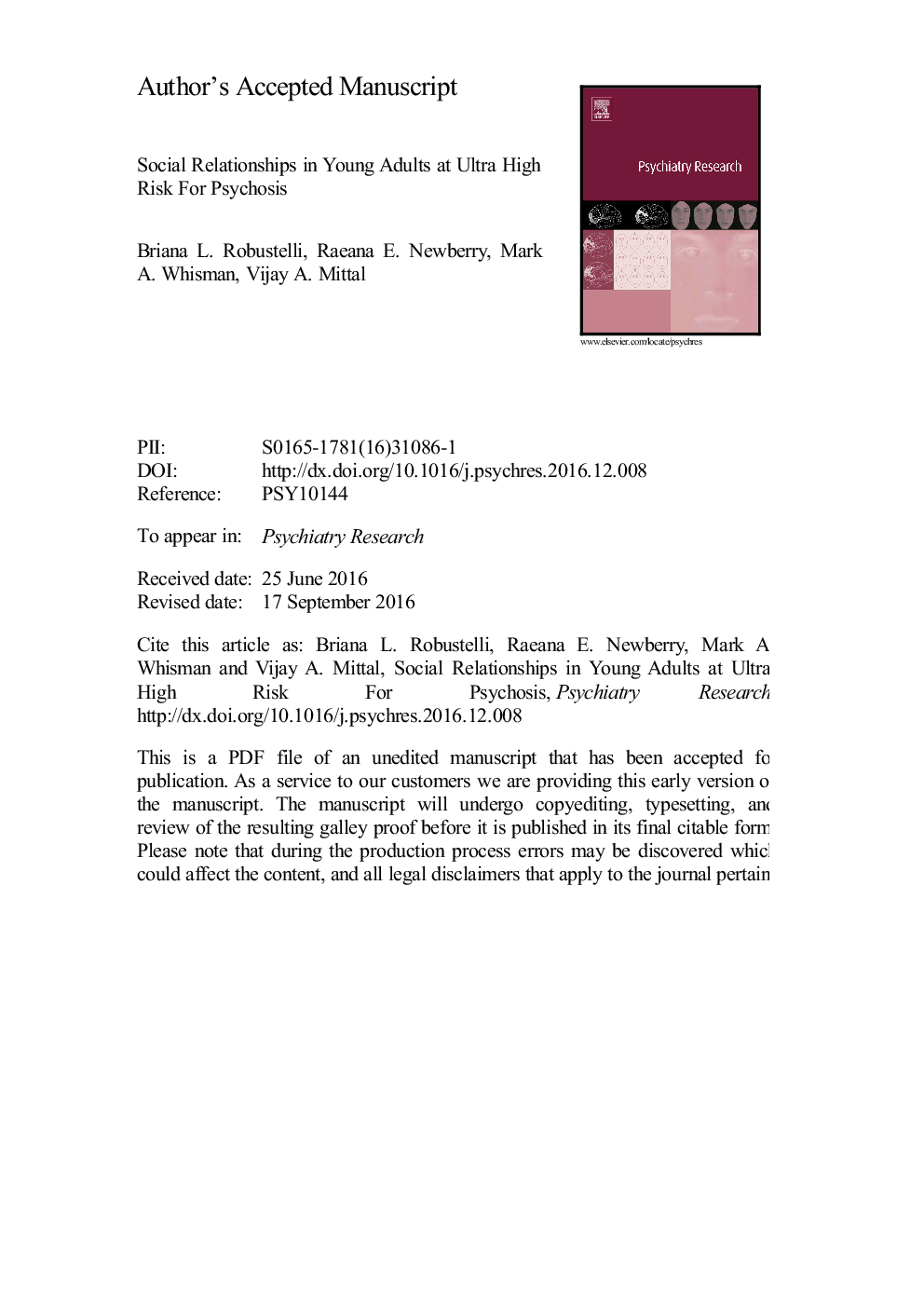ترجمه فارسی عنوان مقاله
روابط اجتماعی در بزرگسالان جوان در معرض خطر فوق العاده برای روان درمانی
عنوان انگلیسی
Social relationships in young adults at ultra high risk for psychosis
| کد مقاله | سال انتشار | تعداد صفحات مقاله انگلیسی |
|---|---|---|
| 130835 | 2017 | 30 صفحه PDF |
منبع

Publisher : Elsevier - Science Direct (الزویر - ساینس دایرکت)
Journal : Psychiatry Research, Volume 247, January 2017, Pages 345-351
ترجمه کلمات کلیدی
علائم منفی، علائم مثبت، روانپریشی شبکه های اجتماعی، حمایت اجتماعی،
کلمات کلیدی انگلیسی
Negative symptoms; Positive symptoms; Psychosis; Social networks; Social support;

